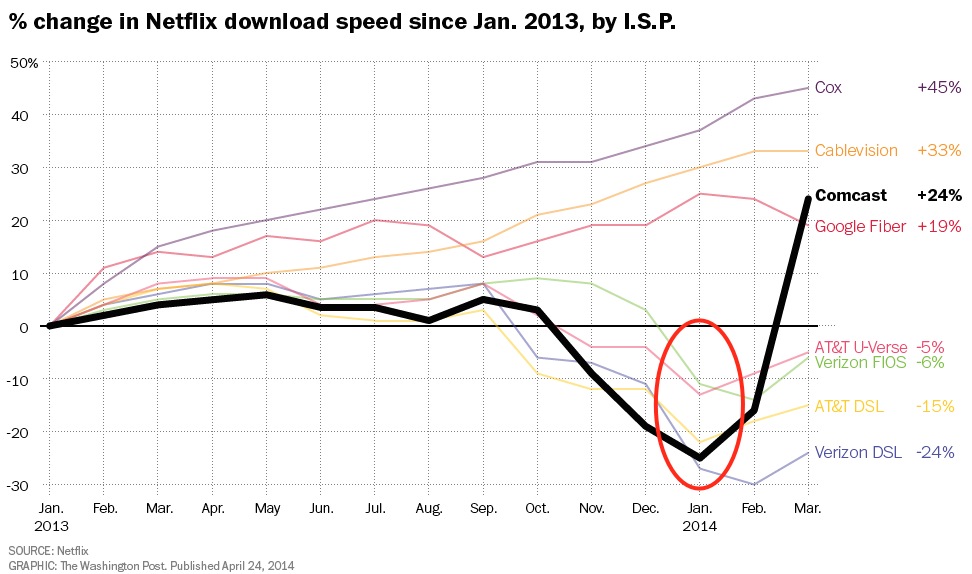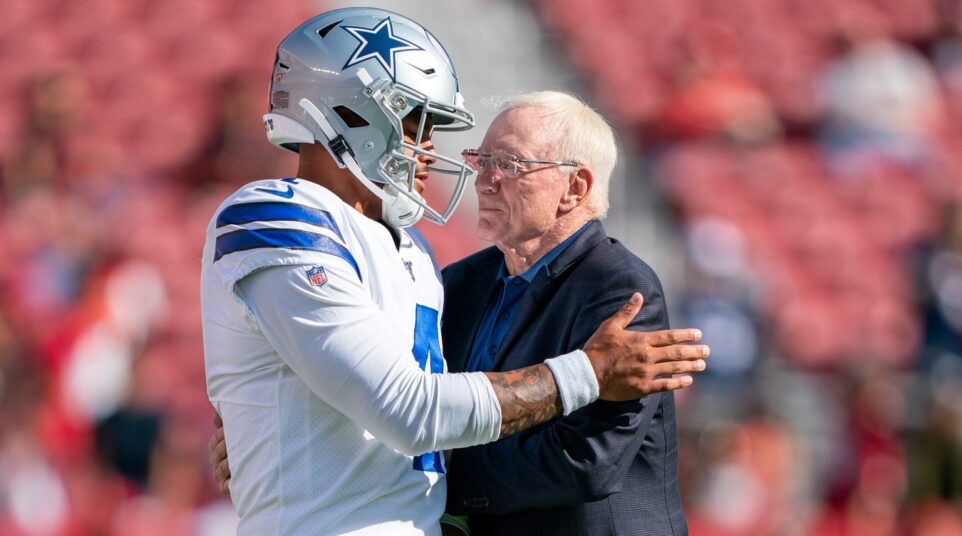Comcast, the Company That Extorted Netflix into Paying for Faster Broadband, Complains Partners Are Extorting Them
Comcast, the company that lords over you from their tower above Philadelphia and strives to make your life a nightmare, is sad. That’s because they’re claiming that their business partners and rivals are “extorting” them to try to get better deals in exchange for support in Comcast’s proposed merger with Time Warner. The New York Times even printed the world’s most obvious statement: “Comcast said many of the media and tech companies that have urged regulators to block or add conditions to the deal were doing so out of their own business interests.” How shocking.
Comcast claimed that “accusations from its rivals and business partners were spurious, typically coming after Comcast refused to ‘grant various self-interested requests’ made after the deal was announced.” That’s shady business — but business nonetheless — and a practice I’m sure Comcast is very familiar with. One of the main opponents of the merger (and main offenders of the claimed “extortion”) is Netflix, whom, if you remember, was extorted by Comcast to keep their speeds up.
Remember that? [The dip represents the period of time just before Netflix started paying Comcast.]
More:
Comcast had accused Netflix of trying to shift its own costs to other companies. Netflix said on Wednesday that the merger was “clearly not ‘great’ for consumers” because of Comcast’s increased control over the market for high-speed residential Internet access. The company noted that it had “grudgingly” paid Comcast for better performance, a “precedent that remains damaging for consumers (who ultimately pay higher costs) and for other innovative businesses (that can be held over the barrel by Comcast to do the same).”
“It is not extortion to demand that Comcast provide its own customers the broadband speeds they’ve paid for so they can enjoy Netflix,” Jonathan Friedland, a Netflix spokesman, said in a statement. “It is extortion when Comcast fails to provide its own customers the broadband speed they’ve paid for unless Netflix also pays a ransom.”
The legitimate concern many of these companies have, however, is that if the merger goes through, and Comcast/Time Warner is the main provider in so many markets, they can charge customers and networks whatever they damn well please, because monopoly.
Discovery Communications said their concern is with Comcast’s ability “to impose onerous terms that jeopardize the ability of independent programmers like Discovery to continue investing in a diverse portfolio of content and brands.” And I think, in general, in a battle between the Discovery Channel and Comcast, I’m going to side with the Discovery Channel.






